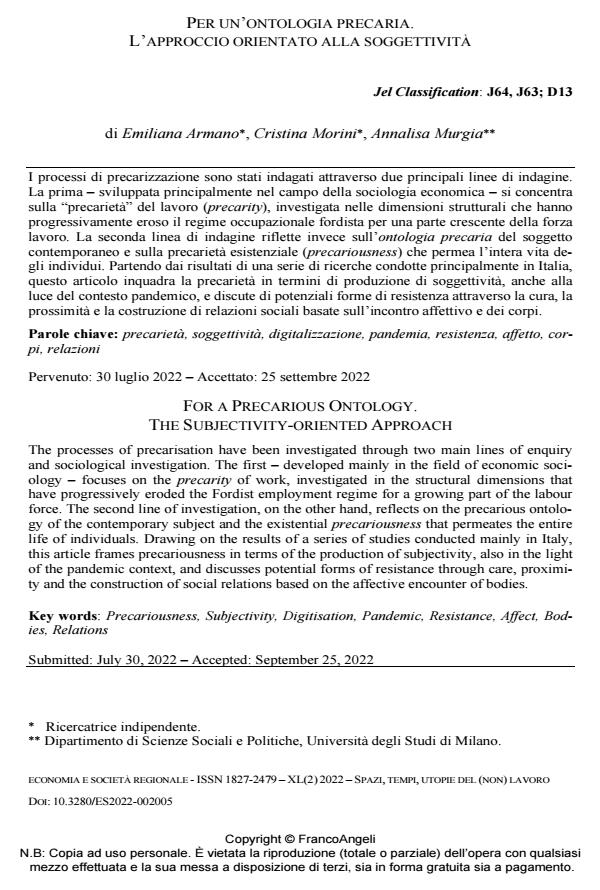For a precarious ontology. The subjectivity-oriented approach
Journal title ECONOMIA E SOCIETÀ REGIONALE
Author/s Emiliana Armano, Cristina Morini, Annalisa Murgia
Publishing Year 2022 Issue 2022/2
Language Italian Pages 15 P. 48-62 File size 285 KB
DOI 10.3280/ES2022-002006
DOI is like a bar code for intellectual property: to have more infomation
click here
Below, you can see the article first page
If you want to buy this article in PDF format, you can do it, following the instructions to buy download credits

FrancoAngeli is member of Publishers International Linking Association, Inc (PILA), a not-for-profit association which run the CrossRef service enabling links to and from online scholarly content.
While at the beginning of the pandemic we wondered if we were facing a restructuring of class relations within the domestic sphere, which tried to make homes a laboratory for the capital, today we have plenty of elements to map this controversy. Raising the feminist strike after the pandemic adds practical and reflexive elements in order to go on with the confrontation at this level. The question is how to continue to build a unionism that trans- cends the frame of the demand of wageworkers to bring the agility and astuteness of the claiming struggle to the field of social reproduction: housing, health, education, care, secu- rity in neighbourhoods. In alliance with the workers in each sector, but at the same time building an agenda that goes beyond since it includes neighbourhoods dwellers, users, ten- ants, precarized laborers. It is a question-horizon that arises because, when we stop, we also produce time for political invention.
Keywords: Trade Unionism, Essential and Precarious Work, Feminist Strike
Jel codes: J64, J63; D13
Emiliana Armano, Cristina Morini, Annalisa Murgia, Per un’ontologia precaria. L’approccio orientato alla soggettività in "ECONOMIA E SOCIETÀ REGIONALE " 2/2022, pp 48-62, DOI: 10.3280/ES2022-002006